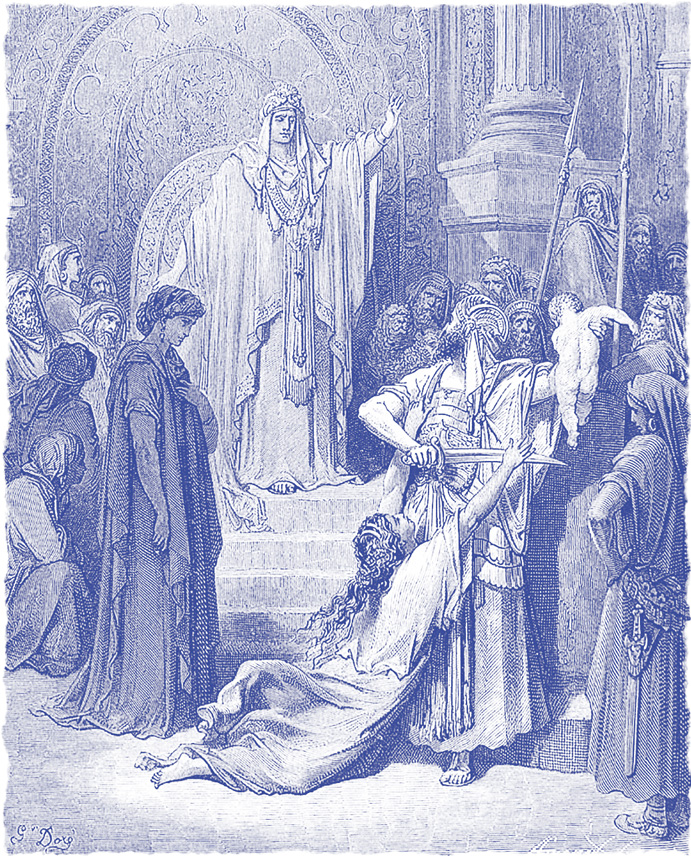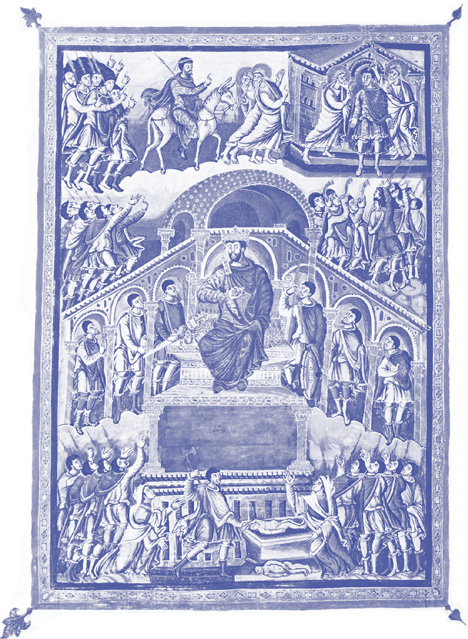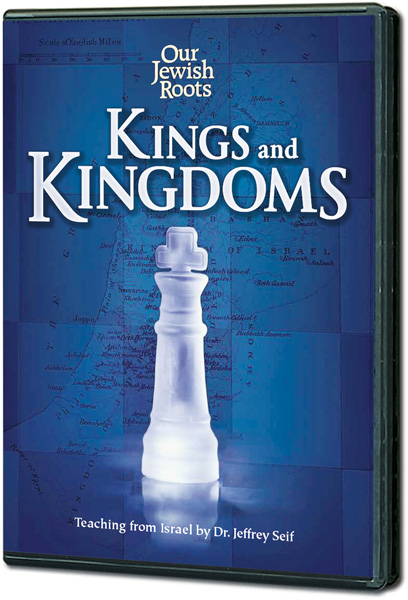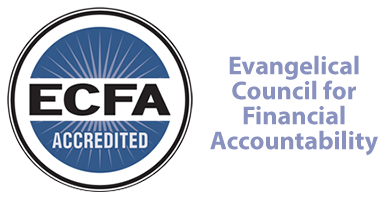
Dear Ministry Partner,
To fully benefit from studying a book in the Bible, you cannot skip over difficult passages, such as the first three verses in chapter 4 of Ecclesiastes. Serious Bible students must plough through even potentially depressing ones. Though this coronavirus era may not seem an apt time to consider dismal thoughts, here we are, about to be blessed.
We can insert Solomon’s favorite phrase — “all is vanity” — whenever we weigh his wisdom. Is it just me or is it disconcerting that the King of Israel, obviously wealthy and off-the-charts intelligent, is frustrated with life? You probably wouldn’t list Solomon in your “lonely hearts club,” but he certainly exhibits mood swings with the best of us (or me). Solomon’s favorite term, which he constantly repeats as he admits his frustration, is “vanity.”

Please grab your favorite Bible translation to follow along with my breakdown of Ecclesiastes 4.
SOLOMON’S FRUSTRATION FROM HIS VIEW AS KING (4:1–3)
As Solomon looked around Jerusalem, he observed people being oppressed (4:1). He noted the oppressors’ power, and that the oppressed had no recourse.
What Solomon witnessed was unpleasant, and he noted in verse 1, “I saw the tears of the oppressed …” As king of Israel, he could, I assume, intervene and level the playing field a bit; but he was too wrapped up in what he considered his own troubles.
He gave very strange responses in verses 2 and 3, in which he appeared to envy the dead. He continued by commenting that maybe it was better to never have been born. That line by George Bailey marks a turning point in the classic movie It’s A Wonderful Life (1946). Portrayed by Jimmy Stewart, George soon learned the horror of his wish when Clarence, his guardian angel, showed him what the world would have been like had he never been born.
Solomon was in what my generation calls a real “funk.” Was he talking about suicide? Not likely. It was such a heinous sin in the Jewish mind that Solomon never would have considered it. But, in our society today, suicide is an unfortunate reality. Recently a NYC doctor, who had been on the front lines in fighting the pandemic and had just recovered from the virus herself, took her own life. What a tragedy that a physician with such a gift for humanity did not seek the help of her own profession!
SOLOMON’S VIEW: THE SELFISHNESS OF MEN (4:4–8)
When the world’s “new normal” returns, our resurgence may be overshadowed by desperation to recover business losses incurred during the shutdown. Though Solomon wasn’t looking at a pandemic, man’s selfishness anguished him: not large businesses, but individuals. These folks he saw were contentious and aggressive with one another.

I really like the Hebrew interpretation of verse 6: “One hand full of rest or ‘completeness’ is better than two fists full of labor.” It shows a satisfaction. Solomon isn’t suggesting anyone throw in the towel in the struggle to operate a business with integrity, but to consider the virtue of practices and products that bring dignity, unity, and joy in the process. Life is not always a contest that needs winning!
An interesting change occurs in verse 8. Solomon is now talking about only one person, as he refers to “a certain man.” He previously referred to a group of people, but now he mentions the result of loneliness. Success takes on less meaning and cause for celebration when we have no one to share it. Lonely is the person who cannot slow down and enjoy the success for which he or she has labored. Unfortunate, don’t you agree? Solomon’s comment translated loosely from the Hebrew: “This is nuts!” ☹️
Climbing the ladder to success involves challenges and setbacks. I will paraphrase a quote from years ago: “Too often people climb the ladder of success only to find that the ladder is leaning against the wrong support.” We all need to ask if our priorities align with God’s priorities for our lives. Again, Solomon’s theme is noted, “vanity.”
SOLOMON’S VIEW: THE VALUE OF FRIENDSHIP (4:9–12)
Now for one of my favorite sections in all of Solomon’s writings. Here, it sounds as though Solomon is writing to married couples, and certainly we marrieds are included. But his advice goes beyond that type of relationship. Notice that this passage never mentions marriage.
Here is a good place in our study to pause and offer up our prayers for all the people who have put themselves in harm’s way during this pandemic: medical personnel; EMTs, firefighters, and other first responders; grocery workers, fuel station workers, and a host of other essential services.
We should also pray for those who are separated from family in ICU units, assisted living, and nursing homes. Though brave attendants are serving them, those attendants cannot replace the friends and families who have been sheltering in place.
All of us need to be encouraged and, as verse 10 says, lifted up. We want that one person (could be more) who refuses to walk away when the going gets tough. Humans need a human touch — and constructive criticism when necessary — in a loving, non-threatening environment.

We want support when we have stuck out our chin and dared the competition to take a swing. The idea in verse 11 regarding warmth when lying down is a wonderful statement for married couples. There is no feeling that compares to settling in with our mate on a cold and dreary winter’s night. Remember, Solomon also wrote the sensuous “The Song of Solomon.”
The reminder that Solomon gives in this verse 11 isn’t only about the marriage bed, but the cold, cruel world in which we live and our need for companionship when exposed to life’s elements.
It’s no fun when you start a new job in a new city or begin a demanding academic endeavor. All eyes are on the new kid, or adult as it may be.
And what about waiting in a hospital room or doctor’s office for medical test results? You and I want someone who will support us in our time of need. Of course, our Lord told us He would never leave us or forsake us (Hebrews 13:5). I am not making light of that promise and the weight it carries for Believers (“Believers” is short for “believers in Yeshua/Jesus as Messiah”), but there is something about a warm touch and assuring smile that helps us get through the tough stuff of life.
We have an adversary who is determined to destroy us.
“Be sober, be vigilant: because your adversary the devil walks about like a roaring lion, seeking whom he may devour.” — 1 Peter 5:8
Our adversary might influence someone to undermine our character and destroy our witness with lies and rumors. When that happens, we need an ally who will walk by our side and not leave us in the controversy. Simply put: We need a friend. There are many examples of friendship in the Bible, but I call your attention to only one: David and Jonathan.
As David’s popularity increased in Israel, Saul’s hatred for him grew. Instead of mentoring David, who would soon become king, Saul sought to destroy him. Saul’s son Jonathan became one of David’s best friends and admirers. In fact, the Bible says that “Jonathan loved him [David] as his own soul” (1 Samuel 18:1).
Our Lord also chose twelve unlikely men as disciples. What a group of misfits He called out to encourage and turn the world upside down with the Gospel! I guess there’s hope for me, too. Of course, only eleven stood the test; but imagine having eleven friends that you can depend on at any given moment and under any circumstances.
SOLOMON’S FINAL REMINDER (4:13–16)
In the final four verses of chapter 4, Solomon reminds his readers that popularity and fame are fleeting. Again, he calls life “vanity and grasping for the wind.” Imagine how walking alongside Yeshua as a disciple would have improved Solomon’s outlook!

Standing firm with Israel and ZLM,

P.S. Upcoming Personal Letters will intrigue and inform you with “On the Ground in Israel” reports from Levitt Letter columnist and Messianic Sabra Sarah Liberman. Please look for my next installment of our Ecclesiastes study in the August Levitt Letter. 

Your personal invitation to join Zola Tours in the Holy Land
It was always Zola’s heart to support the nation of Israel in every way possible. As the world reopens, Israel craves tourists. In order for the high caliber hotels, restaurants, and Biblical sites our tours visit to survive, they need customers. What a time to support Israel, perhaps by joining us on a Holy Land Pilgrimage this fall.
Wouldn’t it be wonderful to fill Zola Tours buses this fall with pilgrims who love the Holy Land? If you have been waiting for the right time to tour and study in Israel, this might be it. Let’s support the land that God Himself set aside for His people and help Israeli tourism remain stable.
Zola Tours manager Sandra will help you prepare for the most amazing trip of your life. Call 214-696-9760, email her at travel@levitt.com, or visit levitt.com/tours. If you’ve dreamed of walking the ancient streets of Greece and experiencing the land of the Bible beyond Israel’s borders, you will be astounded by our highly recommended Greek and Petra extensions.

| Deluxe (Israel only) | Oct 19–29 | $5,288 |
| Grand Petra (Israel & Petra) | Oct 19–Nov 01 | $6,488 |
| Grand Athens (Greece & Israel) | Oct 13–29 | $8,288 |
| Ultra Grand (Greece & Israel & Petra) | Oct 13–Nov 01 | $9,488 |
A Note from David and Kirsten Hart
Kirsten and I have served in church ministry all of our adult lives. When the coronavirus struck the world, I wondered how churches and ministries would or could survive. Most pastors shun the thought of closing the church doors on Sunday mornings, even in blizzard conditions, for fear of losing the much-needed Sunday offerings. Now something unusual is happening.
We have been happily surprised to hear from ministry friends and colleagues that many are experiencing an increase in weekly giving — NOT the anticipated development. Believers have rallied to ensure that churches continue despite global economic crash predictions. Have many individuals lost incomes? Yes. Have retirement investments declined? Most definitely. Yet the Church marches on because of its supporters.
As a para-church organization, Zola Levitt Ministries obviously differs from your church. We don’t collect weekly offerings or conduct stewardship drives or capital campaigns. We survive solely on voluntary donations from Our Jewish Roots viewers and Levitt Letter readers. Enduring this ongoing pandemic has required cuts in pay and hours. With everyone else, we closed our office doors to the public and sheltered at home as much as possible. As an already frugal ministry, our revenue was adversely affected by COVID-19’s widespread impact. If you’d like to see us cope with society’s new normal but with renewed dedication, we need a financial boost. So how can you, our ZLM family, aid us?
First and foremost, we covet your prayers. We still believe that prayer changes circumstances. Signing up for a Holy Land study tour would help keep our Zola Tours outreach alive, and as mentioned above, aid Israel’s tourist industry recovery. Please pray about circumstances allowing you to journey with us this fall or next spring.
Frankly, we need a miraculous financial blessing to ensure that we’ll be able to keep all of our air times. Clicking on the Donations tab at www.levitt.com offers many ways to donate beyond simply writing a check, although “simple” still works, as do credit card contributions by phone.



ZLM is hoping to get back in the black once again. We are ready to produce new and creative television series for Our Jewish Roots and excited to continue teaching about Israel, both Testaments, and the Jewish roots of Christianity.
Our Jewish Roots programs this month
In June, we finish our newest series Kings and Kingdoms. We hope you’re enjoying it. We love hearing from our viewers, so if you have a few minutes, kindly let us know what you learned from this series and share your personal takeaway. Is our Bible teaching making a difference in your life?
From the Bible’s books of 1st and 2nd Kings, Dr. Jeffrey Seif examines the rulers of ancient Israel and Judah. Their stories reveal lessons in Godly leadership and principles we can benefit from today. David and Kirsten Hart discuss the applications for us as we decide who should be our political leaders. In this eight-part series, we also hear from two Israelis about their perspective on the kings, plus Sarah Liberman, who teaches us Hebrew words for worship.
- Judah’s Joash and Uzziah
- Young leaders need wisdom and guidance from advisers who are tethered to God’s Word. As time went by, King Joash’s zeal for the Lord faded as he became prideful. King Uzziah was a young man when he ascended the throne, but he became so obsessed with power, the Lord smote him with leprosy.
- Judah’s Hezekiah and Manasseh
- Good King Hezekiah did not depart from following God and His commandments. Faithfulness pays dividends! Unfortunately, Hezekiah’s son Manasseh brought Judah horror and bloodshed for the five decades of his rule.
- Judah’s Josiah and Zedekiah
- King Josiah rediscovered God’s Word and took it seriously. Oh, that our leaders would do the same! Poor leadership leads to bad consequences. Josiah’s son Zedekiah rebelled against the Lord, paving Judah’s road to ruin.
- Israel’s Future King
- Under the Mount of Olives, Jeff visits the tombs of the prophets Zechariah, Malachi, and Haggai. The prophet Isaiah looked to a reunited Israel’s ultimate King, who is called “Mighty God” and “Prince of Peace.” This is the Lord Yeshua, who will return to rule and reign from David’s throne.
Looking for creative ways to support ZLM? Did you know that even your Amazon purchases can support Zola Levitt Ministries? What an easy (and fun) way to make a financial contribution. Simply go to smile.amazon.com when purchasing anything on Amazon; you’ll get all the same products and prices. Thanks in advance.
As always, we pray that the God of Abraham, Isaac, and Jacob will be incredibly real in your life. Much love.
Sha’alu shalom Yerushalayim! —
Pray for the peace of Jerusalem! — Psalm 122:6
David & Kirsten
P.S. So much more than just a television program, news magazine, and website, ZLM is truly a ministry. How can we pray for you during this season? What challenges are you facing that we, as a ministry staff, can join you in prayer? 

 Zola Levitt Ministries is ECFA approved and has Charity Navigator’s top rating of 4 stars, plus Ministry Watch’s Give With Confidence Score of 100.
Zola Levitt Ministries is ECFA approved and has Charity Navigator’s top rating of 4 stars, plus Ministry Watch’s Give With Confidence Score of 100.


